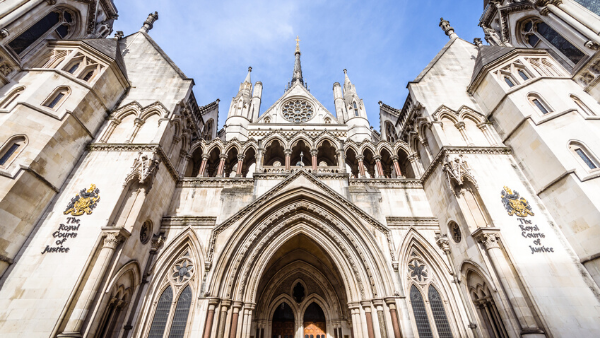[Read time: 6 minutes]
All expert witnesses know that they are bound by an overriding duty to assist the court, which overrides any obligation owed to their client. This fundamental duty is set out in Part 35 of the Civil Procedure Rules, which also contains further requirements as to the content and structure of expert reports.
The report must state the substance of all material instructions, whether written or oral, on the basis of which the report was written.
All reports must contain statements that an expert understands his core duty to the court, has complied with CPR 35 and that the report is verified by a statement of truth which will be familiar to many:
“I confirm that I have made clear which facts and matters referred to in this report are within my own knowledge and which are not. Those that are within my own knowledge I confirm to be true. The opinions I have expressed represent my true and complete professional opinions on the matters to which they refer.”
The consequences of an expert failing in their duties can vary from a judicial ticking off, a claim in professional negligence, a wasted costs order or a referral by the judge to their relevant professional body. None of these constitutes a good day out, but the ultimate penalty is perhaps not widely known about – contempt of court.
Liverpool Victoria case
It should be made clear that this remedy will only apply in cases where the failure of the expert to comply with their obligations is at the extreme end of the spectrum. Such a situation arose in the case of Liverpool Victoria Insurance Company Limited v Dr Asef Zafar [2019] EWCA 392 (Civ).
This case was an appeal from the High Court, which had determined that the expert, Dr Zafar, was in contempt of court. Dr Zafar had a successful medico-legal practice specialising in low value personal injury claims. Using appropriate software he was able to streamline the process and his evidence was that he could examine a patient and produce a report within 15 minutes. Anyone reading this and grappling with a valuation report will perhaps raise an eyebrow at the revelation that Dr Zafar produced about 5,000 reports a year.
This case involved a whiplash claim and Dr Zafar prepared a report on the accident victim, which confirmed that he had made a full recovery. The report contained the usual declarations and a statement of truth.
The accident victim complained to his solicitor that he had told Dr Zafar that he was suffering with ongoing symptoms of neck, shoulder and wrist pain. The solicitor purported to write a letter to Dr Zafar asking him to review his notes and produce an amended report if appropriate. The High Court judge found that this letter was in fact not written on that date and was fabricated much later. There was email correspondence which suggested symptoms at odds with Dr Zafar’s record of the examination and asked if full recovery was likely within 6-8 months.
Revised report
Dr Zafar produced a revised report without a further examination taking place. The revised report gave no indication that there had been a previous version and bore the same date as the original. The revised report was substantially different saying that the pain had not improved, analgesia was required and that the symptoms would resolve within 6-8 months.
County Court proceedings were issued claiming damages relying on the revised report. Unfortunately, a paralegal included the original report in the trial bundle by mistake. The Judge adjourned the hearing and gave directions that witness statements should be produced by those involved.
Dr Zafar stated that the original report was the correct version and that the revised version had been produced without his consent. That assertion was later retracted and he said that he had amended the report. Each witness statement was verified by a statement of truth, which obviously could only correctly apply to one of the statements made. Interestingly, the requirements for such statements of truth have recently changed to include a reference to contempt of court as follows:
“I believe that the facts stated in this witness statement are true. I understand that proceedings for contempt of court may be brought against anyone who makes, or causes to be made, a false statement in a document verified by a statement of truth without an honest belief in its truth.”
Contempt of Court claim issued
The insurance company subsequently issued a claim for contempt of court against Dr Zafar and the instructing solicitor. The High Court found that Dr Zafar had no proper basis for the amended prognosis and his conduct went beyond negligence. These reckless acts were then compounded by an attempt dishonestly to cover up the mistake and blame someone else, before submitting conflicting witness statements, one of which had to be untrue. Similar findings in respect of untrue witness statements were made in respect of the solicitor.
The High Court Judge (relying on the judgment of Moses LJ in South Wales Fire and Rescue Service v Smith [2011] EWHC 1749 who observed that false evidence causes serious damage to the administration of justice) said:
“Those who make false claims should expect to go to prison. Solicitors and expert witnesses who act dishonestly in the evidence they give to the court, whether in support of such claims or otherwise, must expect a similar outcome.”
In sentencing, the High Court concluded that the solicitor’s conduct was so serious it justified an immediate custodial sentence of 15 months. Dr Zafar was sentenced to 6 months in prison suspended for 2 years. The insurance company appealed on the grounds that Dr Zafar’s sentence was too lenient.
Court of Appeal review sentence
The Court of Appeal observed that sentencing guidelines from the criminal courts provided guidance, but there was no authority on the appropriate sentence for a dishonest expert witness in contempt of court. The observation was made that acting corruptly for payment was bad enough, but it would still be a serious contempt of court, even if the expert witness acts from an indirect financial motive, such as a desire to obtain more work from a solicitor. This is because of the reliance that the court places on expert witnesses. The view was expressed that this reliance is so important that an expert who recklessly makes a false statement will be almost as culpable as one who acts intentionally.
The collateral effects of conviction in the form of professional ruin or disciplinary proceedings will not act as mitigating factors in the case of an expert witness. This is because an expert is expected to have good character and professional standing in performing that role.
The Court of Appeal decided that a 6 month suspended sentence was unduly lenient – essentially for reasons aired in the High Court hearing. The correct tariff would have been an immediate custodial term of 9-12 months. However, whilst they reversed the High Court decision, they did not impose the more severe sentence, as sentencing guidance in this area had not been previously available. It would, they said, be unfair to impose on Dr Zafar the adverse consequences of that guidance.
Lessons from this case
This is an extreme case, but there is one point of general application, which will apply to experts who don’t stray from the path so drastically. Care must always be taken when amending reports, particularly if that results in a change from previously stated opinion. An expert’s duty to the relevant tribunal is paramount and should be unaffected by the pressures of litigation and be seen to be so. Any changes must be sufficiently explained and justified, so that any questions, as to the alteration of opinion, can be answered or, hopefully, avoided altogether.

